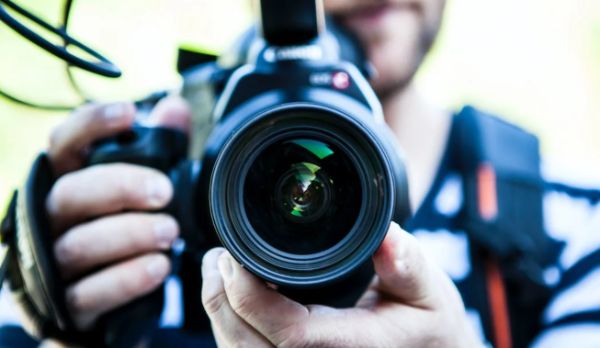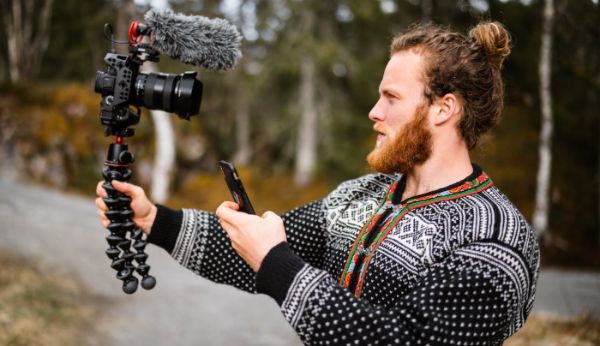In the ever-evolving landscape of digital content creation and sharing, YouTubers and content creators continually seek innovative ways to monetize their passion and hard work. Whether you’re an aspiring vlogger, an established channel, or a brand, understanding and adhering to YouTube’s monetization policies is crucial to avoid penalties and ensure the sustainability of your channel’s revenue streams. At AIR Media-Tech, we recognize the importance of staying compliant with YouTube’s monetization rules, and in this article, we delve into the intricacies of these policies to help creators and brands navigate this critical aspect of their online presence successfully.
Monetization on YouTube
Monetization on YouTube is the process of earning revenue from the content you create and share on the platform. This revenue is primarily generated through advertisements that are displayed before, during, or after your videos. YouTube’s Partner Program, often referred to as YPP, is the gateway for most creators to start monetizing their content. To join YPP, creators must meet specific eligibility criteria, such as having at least 1,000 subscribers and 4,000 watch hours in the last 12 months. Once accepted into YPP, creators can enable various monetization options, including ad revenue, channel memberships, merchandise shelf, and more. These opportunities can be substantial, providing creators with a source of income that supports their content production efforts.
YouTube Monetization Policies
To ensure the quality and integrity of the YouTube ecosystem, the platform has implemented a set of monetization policies that creators and brands must adhere to. These policies cover various aspects of content, such as advertiser-friendly content guidelines, copyright and intellectual property, as well as community standards. Adherence to these policies is not only important for the sustainability of your revenue streams but also for maintaining a positive presence on the platform. YouTube’s monetization policies aim to strike a balance between creators’ freedom of expression and the expectations of advertisers and viewers.

Common Violations and Pitfalls
One of the most common monetization violations on YouTube is the improper use of copyrighted material. This includes using music, images, or videos without proper licenses or permissions. It’s crucial to understand that even if a piece of content is available publicly on the internet, it may still be protected by copyright. Other pitfalls include using deceptive metadata, clickbait titles, or misleading thumbnails to attract viewers. Engagement in harmful or dangerous activities, hate speech, and harassment are also violations that can result in severe penalties, including demonetization or even channel termination.
Staying Compliant with YouTube’s Monetization Policies
Maintaining compliance with YouTube’s monetization policies is essential for the longevity and success of your channel. Here are some key steps to ensure you stay compliant:
- Familiarize Yourself: Regularly review YouTube’s policies and stay updated on any changes or updates. Ignorance of the rules is not an excuse.
- Use Original Content: Whenever possible, create and use original content to avoid copyright issues. If you use someone else’s work, ensure you have the necessary licenses or permissions.
- Engage Responsibly: Maintain a respectful and responsible online presence, refraining from hate speech, harassment, and harmful activities.
- Be Transparent: Be clear and transparent with your audience. Avoid misleading or deceptive practices, such as clickbait.
Copyright and Content Ownership
Copyright infringement is a significant concern for creators, especially when it comes to using music in videos. To avoid issues, utilize YouTube’s Audio Library, which offers a collection of music and sound effects that are free to use. Additionally, consider using licensed or royalty-free music if your content requires it. Always respect the intellectual property rights of others, and understand that content ID systems may flag your videos if you use copyrighted material without permission.
The Role of Transparency and Communication
Transparency is key in maintaining compliance with YouTube’s policies. If you encounter an issue, it’s important to communicate openly with YouTube’s support team and address any concerns they raise. Additionally, maintaining transparency with your audience can help build trust and prevent misunderstandings. If you’re involved in any sponsorship or paid promotion, clearly disclose it in your video or video description.
Challenges Faced by Creators
YouTube’s monetization policies can be challenging for creators, particularly those who are just starting. The complex nature of copyright, the potential for false claims, and the need to navigate an ever-changing landscape can create hurdles. Furthermore, the risk of demonetization or penalties can be discouraging for creators who rely on their YouTube income to support their work.

Advice from AIR Experts
At AIR Media-Tech, we’ve consulted with numerous creators who have successfully navigated YouTube’s monetization policies. Here’s some advice from our experts:
- Educate Yourself: Stay informed about YouTube’s policies and updates. Join creator forums and engage with online communities to learn from others’ experiences.
- Use Licensed Music: When incorporating music into your videos, consider using licensed or royalty-free music to avoid copyright issues.
- Engage Responsibly: Be mindful of the impact of your content on your audience and the broader YouTube community. Strive for positive and responsible engagement.
- Seek Legal Guidance: If you’re unsure about copyright issues or legal aspects, consider seeking legal advice to protect your content and interests.
In conclusion, staying compliant with YouTube’s monetization policies is a critical aspect of maintaining a successful channel. The potential for revenue and growth on the platform is significant, but it must be achieved within the framework of YouTube’s guidelines. By understanding these policies, respecting copyright, and maintaining transparency and communication, creators and brands can thrive in the digital realm while avoiding penalties and setbacks. AIR Media-Tech is committed to helping content creators navigate this journey and ensure their long-term success on YouTube.































